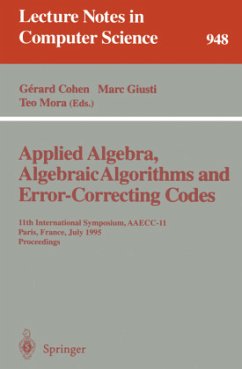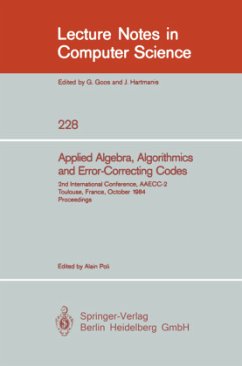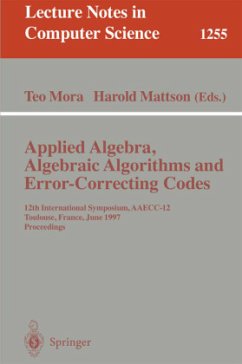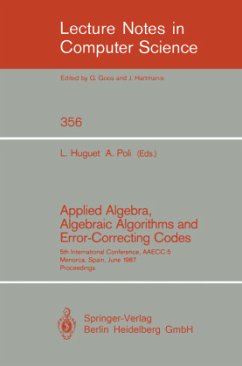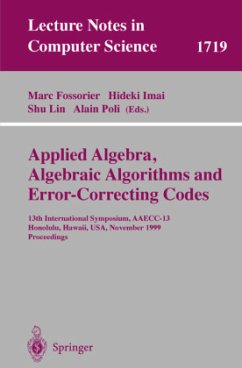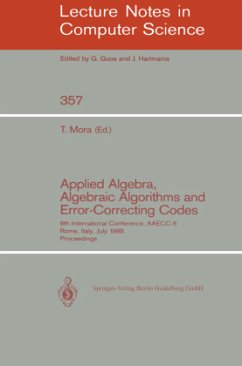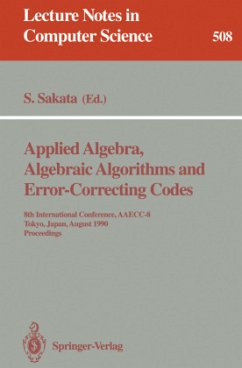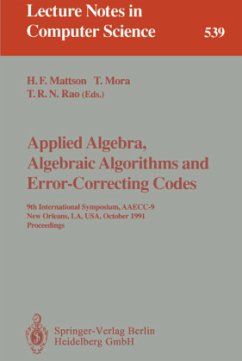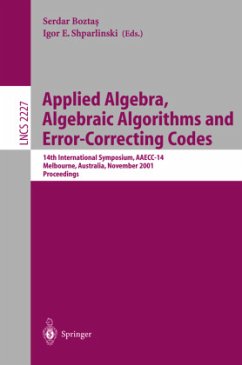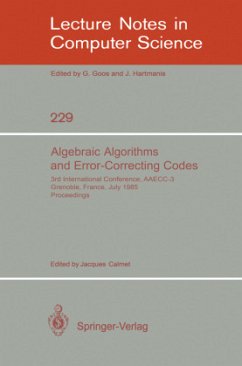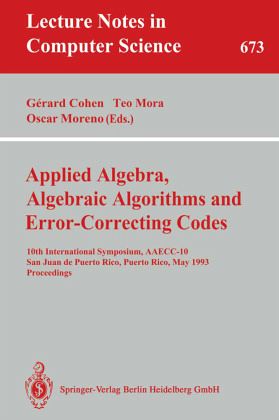
Applied Algebra, Algebraic Algorithms and Error-Correcting Codes
10th International Symposium, AAECC-10, San Juan de Puerto Rico, Puerto Rico, May 10-14, 1993. Proceedings
Mitarbeit: Cohen, Gerard; Mora, Teo; Moreno, Oscar
Versandkostenfrei!
Versandfertig in 1-2 Wochen
39,99 €
inkl. MwSt.

PAYBACK Punkte
20 °P sammeln!
This volume is the proceedings of the 10th InternationalSymposium on Applied Algebra, Algebraic Algorithms andError-Correcting Codes (AAECC 10),held in Puerto Rico, May1993.The aim of the AAECC meetings is to attract high-levelresearch papers and to encourage cross-fertilization amongdifferent areas which share the use of algebraic methods andtechniques for applications in the sciences of computing,communications, and engineering.The AAECC symposia are mainly devoted to research in codingtheory and computer algebra. The theoryof error-correctingcodes deals with the transmission of information ...
This volume is the proceedings of the 10th InternationalSymposium on Applied Algebra, Algebraic Algorithms andError-Correcting Codes (AAECC 10),held in Puerto Rico, May1993.The aim of the AAECC meetings is to attract high-levelresearch papers and to encourage cross-fertilization amongdifferent areas which share the use of algebraic methods andtechniques for applications in the sciences of computing,communications, and engineering.The AAECC symposia are mainly devoted to research in codingtheory and computer algebra. The theoryof error-correctingcodes deals with the transmission of information in thepresence of noise. Coding is the systematic use ofredundancy in theformation of the messages to be sent so asto enable the recovery of the information present originallyafter it has been corrupted by (not too much)noise.Computer algebra is devoted to the investigation ofalgorithms, computational methods, software systemsandcomputer languages, oriented to scientific computationsperformed on exact and often symbolic data, by manipulatingformal expressions by means of the algebraic rules theysatisfy. Questions of complexity and cryptography arenaturally linked with both coding theory and computeralgebra and represent an important share of the area coveredby AAECC.





